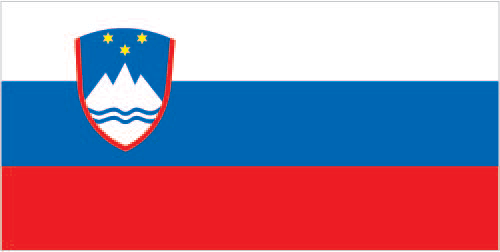
Source: World Bank
Meeting people
Communication Style
Slovenians are egalitarian, yet interestingly their natural communication style tends to be indirect. However, at the same time their polycentricity means they are willing to adapt their communication style to the person with whom they are conversing.
They prefer to communicate indirectly with people whom they do not know well. This can be demonstrated by offering vague, roundabout, or non-committed explanations rather than offer a negative response. They tend to prefer non-confrontational business dealings when possible. This means that even when giving a straightforward response, they will generally proceed cautiously rather than hurt another person’s feelings.
Business decisions are often based on personal sentiments about the other person. Therefore, it is a good idea to spend time in relationship building.
Slovenians admire modesty and humility in business associates. They dislike people who boast about their accomplishments and achievements.
Slovenians are naturally soft-spoken and do not raise their voices when conversing. They are also polite, courteous, and respectful of others. They do not interrupt a speaker, preferring to wait for their turn to enter the conversation. They are very tolerant of differences and view it as rude behaviour to publicly criticize or complain about people.
Although Slovenians have a good sense of humour, they do not always understand self-deprecating humour. Be cautious when teasing others, as such behaviour may be interpreted as putting them down.
Business Meetings
Meetings typically start after a brief period of social chit chat. Make sure this is not rushed as it is all part of the relationship building process. Although not a relationship-driven culture in the classic sense, Slovenes prefer to do business with those they know and trust. When meeting with a company for the first time, this period of social interchange may be somewhat extended so that your Slovene colleagues get the opportunity to learn something about you as a person and make judgments about your character.
Expect your Slovene business colleagues to be somewhat reserved and formal initially. It may take several meetings to establish a sense of rapport and relaxed attitude between people. The Slovene business culture is a mix of German efficiency and Italian gusto for life; however, this second attribute is not always readily apparent. It takes time for Slovenes to shed their reserve, although they generally do, especially after a few glasses of wine.
Business decision-making processes are often based on hierarchy, and many decisions are still reached at the highest echelons of the company. Final decisions tend to be translated into comprehensive action plans that are followed explicitly.
When meeting with peers or in teams, Slovenes’ egalitarianism is apparent. The hierarchy is relatively flat. Although the team leader is considered to be the expert, all members are deemed to have something to contribute. With a culture based on tolerance, disagreements are based on different interpretation of information. Actual decisions may be based more on personal viewpoints than concrete facts.
With rare exceptions, the delovni Äas (opening times) of any concern are posted on the door. Odprto means ‘open’ while zaprto is ‘closed’.
Grocery stores and supermarkets are usually open from 8am to 7pm on weekdays and 8am until 1pm on Saturday. In winter they may close an hour earlier. Some branches of the Mercator supermarket chain open from 8am to 11am on Sunday.
Restaurant hours vary tremendously across the country but essentially are from 10am or 11am to 10pm or 11pm daily. Bars are equally variable but are usually open 11am to midnight Sunday to Thursday and to 1am or 2am on Friday and Saturday.
Bank hours vary, but generally they’re from 8am or 8.30am to 5pm weekdays (often with a lunchtime break from 12.30pm to 2pm) and (rarely these days) from 8am until noon or 1pm on Saturday. The main post office in any city or town (almost always the ones listed in this book in the Information sections of the individual towns and cities) is open from 8am to 7pm weekdays and 8am until noon or 1pm on Saturday.
Museums are usually open from 10am to 6pm Tuesday to Sunday. Winter opening hours may be shorter (or at weekends only) outside the big cities and towns.